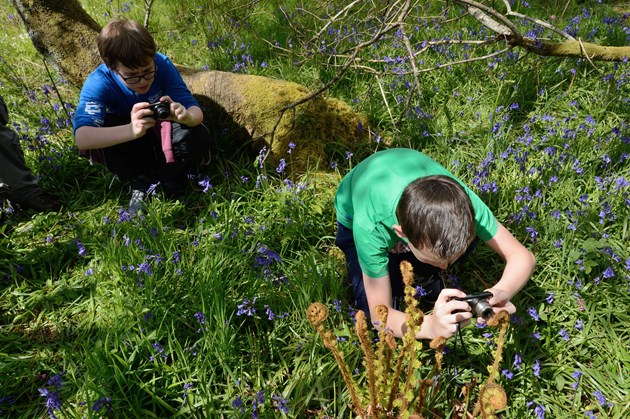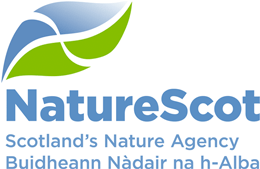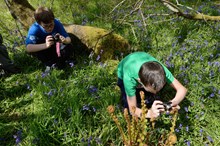30 March, 2023
Report highlights need for school children to be more connected to nature

A new report from NatureScot and partners has highlighted how Scotland’s children could be offered increased amounts of outdoor learning and play, stimulating a post-pandemic generation’s connection to nature and its benefits.
The most extensive research to be published since 2014 on the topic, the report was co-funded by Historic Environment Scotland; Scottish Forestry; Loch Lomond and The Trossachs National Park Authority and Cairngorms National Park Authority. It offers an in-depth picture of teaching, learning and play activity, provided by staff working in 19 early years centres and 25 primary schools.
The provision of outdoor learning and play in early years education in Scotland has increased compared to 2014 survey findings, rising from 36% of the day spent outdoors in 2014 to 39% in 2022. It continues to focus strongly on play and shows a small increase in off-site provision in woodland locations.
Demonstrating the benefit of learning in nature over other outdoor spaces, the survey reports that over half of the events in woodlands (9 out of 15 events) and at lochs and coastal areas (3 out of 4 events) were felt to enhance the challenge or enjoyment for pupils, while less than half of activities held in the school grounds (25 out of 69 events) were felt to offer the same benefits.
Figures for primary school children, however, show a decrease from 24 minutes per pupil per week in 2014 to just 7 minutes in 2022. Covid restrictions meant outdoor experience residential school trips were very uncommon, but this only accounts for part of the decline.
Outdoor learning and play are key elements of Scotland’s Curriculum for Excellence, aiming to support the improvement of young people’s health, wellbeing, and educational outcomes, achieving Scotland’s target to become a nature positive, net zero country.
While outdoor learning continues to be seen by teachers as curriculum-enhancing and enjoyable, considerable numbers of teachers across primary and early years lack confidence in offering it, with early years practitioners reporting higher confidence levels than primary teachers for both outdoor learning and Learning for Sustainability.
Schools which are providing more outdoor learning time tend to be smaller - all schools offering more than 10 minutes per pupil per week of outdoor provision had a roll of less than 100 pupils, while schools located in more deprived areas faced greater challenges.
NatureScot’s Outdoor Learning Advisor, Sharon Cunningham said: “As our communities, early years centres and schools recover from the restrictions and pressures of the pandemic, Scotland’s nature offers the key to healthy, engaging and valuable time spent playing and learning outdoors for our children.
“Given that we have seen a decline, NatureScot looks forward to supporting the sector through these challenges as it builds the confidence of our educators - ensuring the next generation grow up to value and protect nature.”
Read the full research report: Teaching, learning and play in the outdoors: a survey of provision in Scotland in 2022
Ends.
Contact information
- Name
- NatureScot Media
- Telephone
- 0131 316 2655
- media@nature.scot
NatureScot is Scotland's nature agency. We work to enhance our natural environment in Scotland and inspire everyone to care more about it. Our priority is a nature-rich future for Scotland and an effective response to the climate emergency. For more information, visit our website at www.nature.scot or follow us on X at https://x.com/NatureScot
’S e NatureScot buidheann nàdair na h-Alba. Bidh sinn a’ neartachadh àrainneachd na h-Alba agus a’ brosnachadh dhaoine gu barrachd suim a chur ann an nàdar. Tha e mar phrìomhachas againn gum bi nàdar na h-Alba beairteach agus gun dèilig sinn gu h-èifeachdach le èiginn na gnàth-shìde. Tha an tuilleadh fiosrachaidh aig www.nature.scot no air X aig https://x.com/NatureScot

